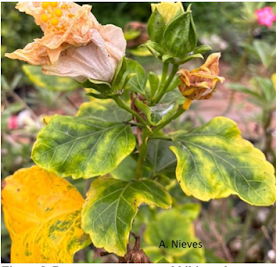University of Florida/IFAS researchers including Dr. Chris Marble (weed scientist) were recently awarded a USDA-SCRI grant entitled ‘Labor, Efficiency, Automation, and Production: LEAP Nursery Crops Toward Sustainability. The project's goal is to help nursery growers evaluate and potentially adopt new forms of automation, improve production efficiency, and reduce labor. Dr. Marble is working on evaluating the efficiency of different types of herbicide application equipment. For this research, he will investigate the accuracy, uniformity, and efficiency of different types of granular and spray-applied application equipment and needs nursery cooperators! All you would have to do is let us know when you plan on making a regular herbicide application and we can collect the data which we will share back with you. Another project goal is to determine how efficient different forms of applications are so growers can make more informed decisions before making equipment investments and/or adopting new practices.
If you would be interested, please contact Shawn Steed at ststeed@ufl.edu. An additional portion of
this research highlights grower’s successes with different forms of
automation. If you are willing to share information on any form of equipment,
production methods, or other tools you have adopted that have made your nursery
more efficient, we would love to highlight your success and learn from you.











